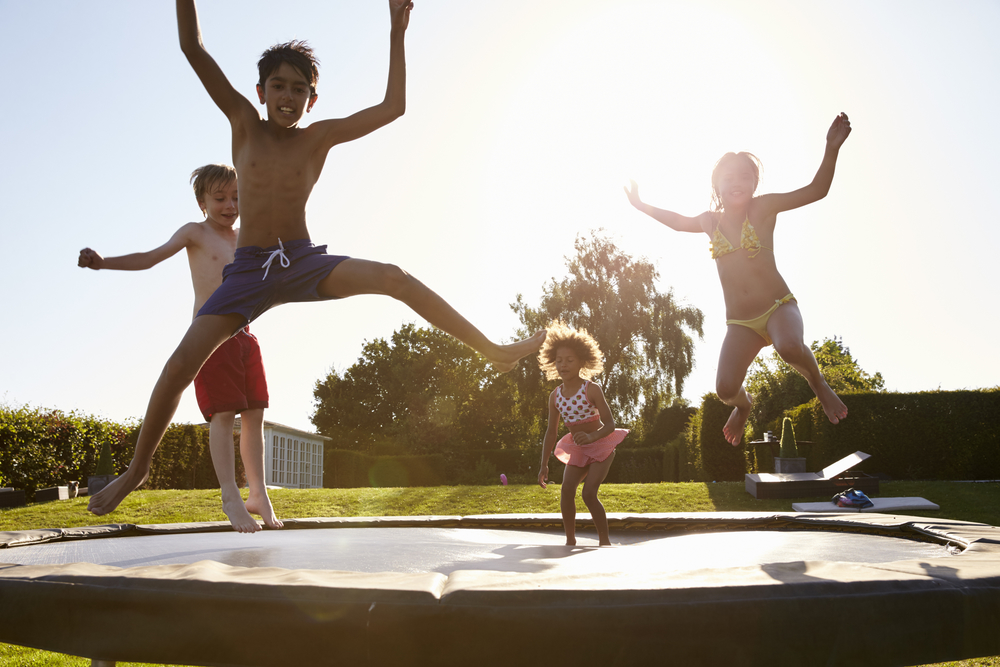What to Do If a Guest Is Injured at Your Holiday Cottage

Despite taking safety precautions and carrying out a risk assessment to reduce potential risks, there is still a possibility that a guest will be injured at your holiday home.
Regardless of whether the injury is the guest’s fault (for example they have ignored your safety instructions or have been reckless) or the injury is due to negligence on the property owner’s part, here is what you need to do.
Accidents happen
There have been many accounts of holidaymakers who have had accidents on holiday with tragic consequences.
Tragic fall down stairs
A holidaymaker sadly died when she fell down the stairs whilst staying in a holiday cottage. It was argued the staircase which she fell down didn’t meet national standards, so warnings should have been in place. However, it was concluded that the holiday home owner wasn’t at fault.
West Somerset Council stated that old houses don’t have to comply with regulations on staircases even if they are let out for holidays. Furthermore, the holiday let was inspected annually by the tourist board and letting agency. After the incident, the owner consulted health and safety and fitted a handrail for future guests. The owner was also advised to put some markings at the top of the stairs.
Shattered glass
A woman from West Sussex successfully sued Virgin Holidays for £24,000 after she suffered deep lacerations all over her body from a shattering window. The woman in question was relaxing on her balcony at a Caribbean Hotel when she walked into the closed French windows. The glass shattered and left her with life-threatening cuts all over her body. The fact that the glass was neither toughened nor safety glass won her the case.
Don’t admit liability
People tend to apologise when someone has been hurt, but apologising could be taken as an admission of liability. Apologising suggests that you’re at fault which isn’t necessarily true. Make sure the guests are ok and show empathy, but until it is apparent that the incident has taken place because of your actions, don’t admit any liability or apologise.
Gather the facts
Ask guests to provide a written account of what happened. Try to establish what/where/how and when the incident happened. You should also take notes and photos (especially of any safety signs or instructions) as these will help with any insurance claim.
You should emphasise in the booking terms and guestbook that guests must inform you or your property manager as soon as possible if an incident does occur at your property.
Do not respond to any correspondence beyond acknowledging receipt and stating that you have passed it on to your insurers.
Inform your Insurer
Next, you will need to inform your insurance provider with full details of what happened as soon as possible, so they’ll be able to deal with any claim. A comprehensive holiday letting insurance policy should include public liability insurance to deal with legal action if someone has an accident, injury or sadly dies while at your holiday home.
The insurance company may appoint a loss adjuster to gather the facts of what happened to identify if you have been negligent or not. You may need to provide evidence to demonstrate that you’ve taken reasonable precautions, the property is well maintained, and you conform with health and safety regulations. This evidence could include maintenance schedules, proof of adherence with legislation, updated risk assessments etc.
Remember, your insurance is there to help, so utilise their expertise and advice.
How to reduce risks in your holiday home
As a holiday let owner you have a duty of care to ensure your holiday home is safe for guests and that you adhere to the relevant health and safety regulations when letting your holiday home.
For a personal injury claim to be successful, it must be demonstrated that the injury was caused by a breach of duty and that the host has been negligent. Therefore you need to give evidence that you have made every effort to prevent accidents and that you have not been negligent. This includes ensuring that equipment is safe to use and that adequate instructions or warnings are provided.
To summarise
Naturally, as a holiday home owner, the last thing you want is for someone to have an accident at your property. You aim for every guest to have a memorable stay filled with happy memories, not tainted ones.
It’s also essential that you adhere to the relevant health and safety guidelines and carry out regular risk assessments to remove risks and make guests aware of them. Make sure operating instructions are relayed to guests clearly, so they know how to use things safely.
However, accidents happen and if they do, be sympathetic but don’t admit liability. Gather all the information you can and let your insurer deal with the claim.
If you are looking for comprehensive holiday letting insurance that covers injured guests and accidents, our policy includes £5m public liability insurance as standard.
See how much you could save!
Click here to start your quote
2 Comments
We have a holiday home that is let out to paying guests in the summer months. It has new spiral steps down to the beach with 3 foot high safety railings all the way down. As such they are safe but I am worried about possible claims. Can you advise. We are wondering if putting a safety notice saying steps are for use at your own risk would suffice. We have insurance for 3rd party accidents up to £5 million . Many thanks for your thoughts
Regards
Roy
Hi Roy, this post on risk assessments should help https://www.schofields.ltd.uk/blog/5006/risk-assessment/